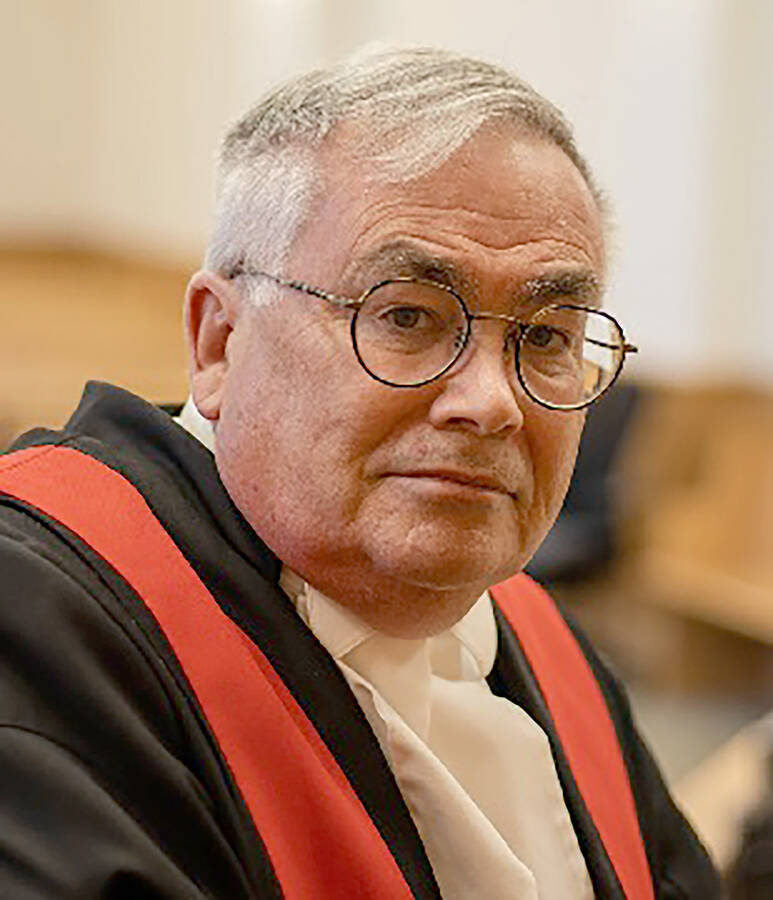
2024-01-17
Lunenburg County judge retires
BRIDGEWATER - Last year marked the finish line of Paul Scovil's decades in the legal profession, a respectable career filled with courtroom highlights such as his judicial stamp on a high-profile murder case and a nationally-watched matter involving young men and their use of Dropbox.
Although the Nova Scotia Judiciary said he's retired, Scovil, a provincial court judge in Bridgewater, isn't yet completely letting go of the gavel. He continues to fill in at various locations across the province.
"It certainly gives you an overview of the justice system and how it affects people," he said of being a judge, during in a phone interview with LighthouseNOW shortly after his retirement was announced.
Not long after he was appointed to the bench, in August 2011, he obtained new insight into judicial thinking when one judge asked him, while attending an education conference, how he would handle a particular case.
"It just struck me; it was almost a surprise to me that there could be different ways judges could handle things and that one way isn't more right or wrong than the other but they could be different," Scovil explained.
Originally from New Brunswick, Scovil was called to the Nova Scotia Bar in 1982 and practiced in private law firms in both his home province and in N.S. He was a defence attorney with Nova Scotia Legal Aid and, for the 14 years leading up to his appointment to the bench, he was a Crown prosecutor, with most of those years spent in Lunenburg County.
It was in the late 2000s when he was part of the Crown team leading the Crown's case against Penny Boudreau who later confessed to strangling her own daughter, Karissa. Scovil said his own daughter was around Karissa's age at the time and the details of the murder struck a chord.
The impacts were widespread, he explained, as the community felt such profound sadness for Karissa who didn't get a chance to live her life.
"It was one of my first dealings with a Mr. Big operation," Scovil said, referring to the undercover police technique that secured Boudreau's admission of guilt. "It certainly was a major point in my legal career."
In the late 2010s, now-Judge Scovil would preside over a landmark youth case, widely-observed by the legal profession and national media at the time because of the details of the crime and newness of the criminal code charge involved.
Six teens used the online file hosting service Dropbox to collect, store and share intimate images of 21 different females without the girls' consent. In 2017, all six young men were granted conditional discharges.
"In those kinds of cases you're dealing with the impacts on victims, young people and how the law treats them and you're dealing with six or seven counsel. It's not something we see everyday," Scovil added.
"I learn from every case but that one gives insight into impacts (also) on accused, families, communities because that one, you could tell the school community (was impacted) as was the community in how it related to the victims and accused."
The case also yielded new standards in the media's requests for, and access to, youth court records, "a really good decision," in the eyes of Scovil.
Also during his time on the bench, he's also had to navigate his approach to cases to ensure they align with major edicts from higher courts or new guidance from parliament. One of the big changes involved the Supreme Court of Canada's view on how long is too long for a person to go to trial. "It's amazing how different things can be in a very short period of time," Scovil said.
Every day on the bench is different. The tough days are the ones when a witness, particularly one who's been a victim of a crime, is getting "grilled" and having a hard time with a lawyer's inquiries.
"You run a fine line (involving) someone being treated fairly and properly in court and not stepping on Crown of defence's toes or impacting questions," Scovil said. Sex crime allegations "are the most gruelling matters that come before any judge," he said.
"A murder case is difficult but sexual assault (matters) are right up there."
The best days in court are when all sides function at their best or when lawyers, who maybe at loggerheads, leave the courthouse content with how he's handled an issue or decision.
"Those are good days," Scovil said.
"What really makes a difference is a Crown counsel at the top of their game and defence is at the top of their game and I feel like I've done the right thing. Those are the days that are rewarding from a professional standpoint."
In a news release from the Nova Scotia Judiciary, Pamela Williams, then the Chief Judge of the provincial court, lauded Scovil for being "a wonderful colleague" who always steps in to help out with even the most difficult assignments. The fact that he is willing to continue assisting his colleagues even after retirement is further testament to his character."
Williams also noted his sense of humour, "often poking fun at himself." Asked about this, Scovil declined to go into details but said, with a laugh, "behind the scenes, we're just people."
Becoming a judge was a challenge he sought after seeing different sides of the legal system and felt compelled to get yet another perspective.
Retirement is "bittersweet," he said.
"It's a big change but it's a new chapter. I'll miss the camaraderie with staff but, on the other hand, I look forward to having time to do other things that I want to do."
"It was a good career."






